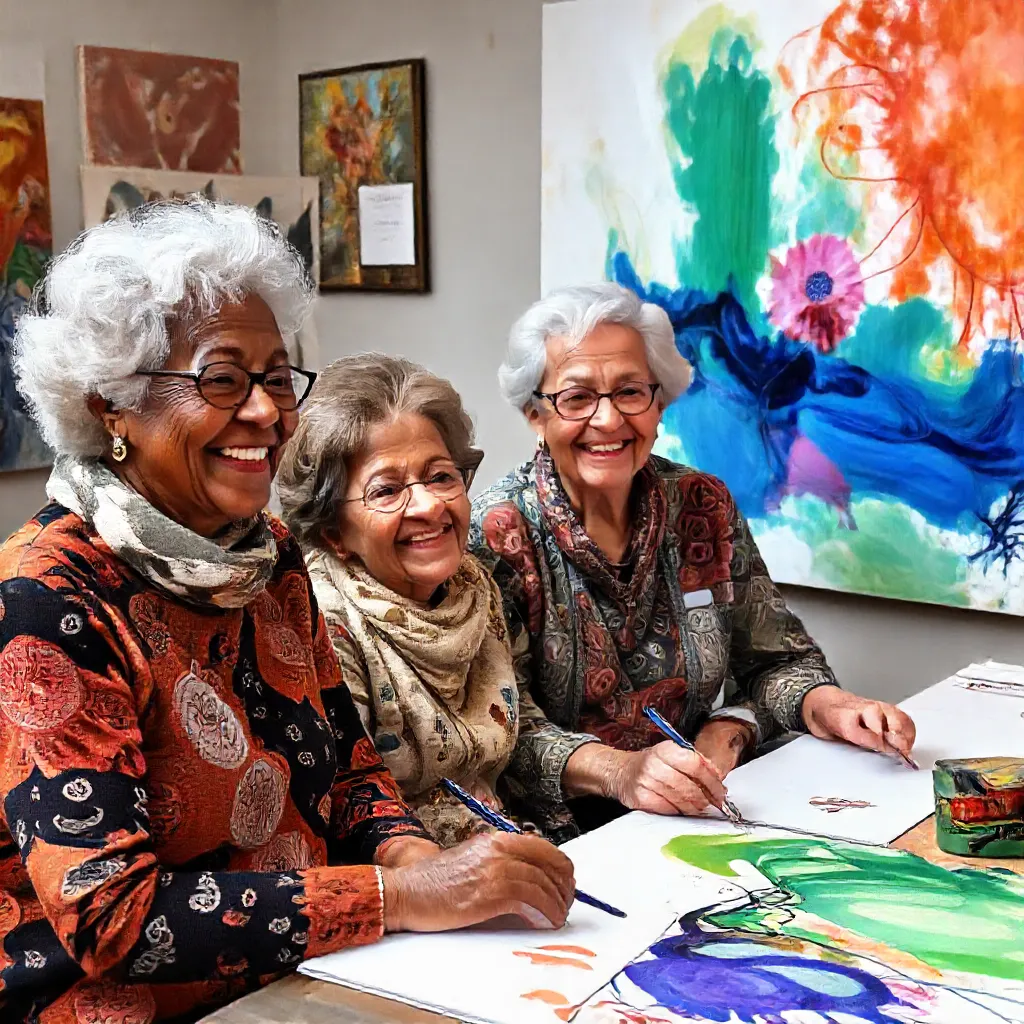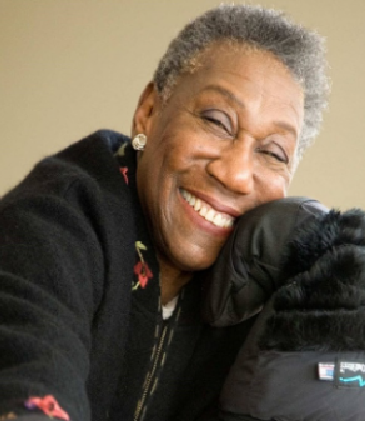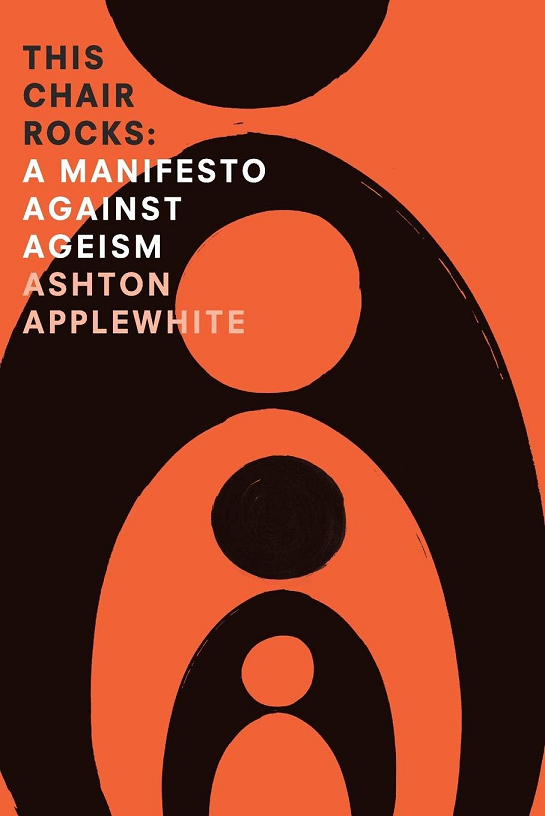The Secret of Aging Well
February 1, 2025 at 10:09 a.m.
Academy Award winner Jane Fonda, 87, recently shared a secret for aging gracefully.
"You are being robbed of 7 and 1/2 years of your life," she proclaimed on CBS' Sunday Morning program.
The program also featured anti-ageism advocate, Ashton Applewhite. Together, Jane and Ashton told viewers that people with more positive age beliefs lived an average of 7 and 1/2 years longer than people who equated aging with disease and decline.
Sounds good, but Jane and Ashton recognize that staying positive about aging is not always easy.
Jane tells us, "One way to live longer is just to have a good attitude. But society is doing literally everything it can to make sure we don't have a good attitude, from the beauty industry to what we see every day in the news."
"All that stuff will lead you to believe that getting older is terrible," she adds. "That's not just a little insulting. It's wrong."
Instead, say Jane and Ashton, there is a lot to look forward to as we age.
Ashton calls on the science of aging, which reveals that people are happiest at the beginnings and the ends of their lives, something called the 'U-Curve of Happiness.' The U-Curve of Happiness is universal and is backed by dozens of studies from around the world.
Jane wondered: to achieve this happiness in old age, do we need perfect health?
"Nope," replies Ashton.
"Money?"
"Nope."
"It's having a solid community, the most important component of a good old age," adds Ashton.
In fact, research is showing that isolation and loneliness pose a greater threat to health than aging itself. The answer to positive aging, Jane tells us, is in aging with other people.
But how to build a community if you don't already have one?
While there are many avenues for building community, Jane and Ashton point to one in particular.
"The health benefits of being in art class --specifically-- it turns out, are fascinating," says Ashton. Art classes are one great way to build community. A National Endowment for the Arts study shows this to be true.
Art is defined as any creative endeavor, from visual art to singing to theater and dance, flower arranging.... the list goes on. The key is to share the activity with other people and form new relationships over time (or strengthen existing ones). Find a creative activity you can enjoy -- even if your skills aren't great -- and continue doing it with a community of people you can stick with.

Reflecting on the study, Jane said, "Art classes for older adults increased mental engagement, increased physical activity. They found new, or stronger, relationships."
Ashton adds, "They visit the doctor less often. They are less likely to fall."
"So much of your life gets better as you age," says Jane. “We get less stressed. We become kinder to ourselves and braver. We’re less judgmental. And best of all — we stop caring so much about what other people think of us.”
Another thought from the program: While you reflect on the joys of aging, don't let the quick assumption of 'senior moments' get you down. "Young people forget things, too, all the time," Ashton points out. "When I lost the car keys in high school, I didn't call it a 'junior' moment.' We are so brainwashed to equate old age with disease and decline and badness." Instead, she adds, think of it this way: "Aging is the one universal human experience. It is a process of growth and self-knowledge that is a joy."
The segment ends by telling us that we should reframe having senior moments. Jane provides the example of a woman named Barbara Hillary, who was the first Black woman to reach the North and South Poles, and she was 75 years old... Now that's a senior moment!
 Barbara Hillary
Barbara HillaryOne doesn't need to dream as big or reach as far as Barbara Hillary to pursue a meaningful senior moment. Jane concludes the program by saying, "I'm ready for my senior moment!"
How about you?
You can watch the CBS Sundy Morning program with Jane Fonda and Ashton Applewhite at the following link: The Secret of Aging Well
- - - - -
MORE INFORMATION:
I had the chance to interview Ashton Applewhite when she was in town in 2019 promoting her new book, This Chair Rocks: A Manifesto Against Ageism. The resulting article is republished below...

From childhood on, we’re barraged by messages that it’s sad to be old, that wrinkles are embarrassing, and that old people are useless. Ashton Applewhite believed them, until she realized where this prejudice comes from and the damage it does.
Her book, This Chair Rocks: A Manifesto Against Ageism has been called lively, funny and deeply researched. It traces Applewhite’s journey from apprehensive boomer to pro-aging radical, and in the process debunks myth after myth about late life. She explains the roots of ageism in history and critiques the portrayal of ‘olders’ as burdens to society. She examines ageism from the workplace to the bedroom and describes what an all-age-friendly world would look like. She concludes with a rousing call to action.
“I didn’t set out to become a writer” (or an activist), says Applewhite. “I went into publishing because I loved to read and didn’t have any better ideas.” Under the name Blanche Knott, she wrote a joke collection that turned into the best-selling paperback of 1982 and became a clue on Jeopardy: (“Who is the author of Truly Tasteless Jokes?”) Her first serious book, Cutting Loose: Why Women Who End Their Marriages Do So Well, was published in 1997.
Applewhite first began studying aging because she was afraid of getting older but soon realized that most of what she thought was wrong. She then began examining the question of why society’s views on late life is so grim when the reality is so different. In fact, it turns out that people are happiest at the beginnings and the end of their lives. “I began blogging about aging and ageism in 2007, and started speaking on the subject in 2012,” writes Applewhite. In 2017 she received a standing ovation for her TED talk about ageism.
“What’s one thing that every person in this room is going to become? Older,” she said in her TED talk. “And most of us are scared stiff at the prospect… I used to feel the same way. What was I most worried about? Ending up drooling in some grim institutional hallway. And then I learned that only four percent of older Americans are living in nursing homes, and the percentage is dropping. What else was I worried about? Dementia. Turns out that most of us can think just fine to the end. Dementia rates are dropping, too. New medicines are on the rise, and research is beginning to demonstrate how we can actively participate in reducing our risk of developing dementia.
“I also figured that old people were depressed because they were old and they were going to die soon. It turns out that the longer people live, the less they fear dying (in fact, people grow happier as they grow older)… So I started feeling a lot better about getting older, and I started obsessing about why so few people know these things. The reason is ageism: discrimination and stereotyping on the basis of age.”
Applewhite reflected that the strange thing about ageism is that it feeds on denial – our reluctance to acknowledge that we are going to become that older person. “It’s denial when we try to pass for younger or when we believe in anti-aging products, or when we feel like our bodies are betraying us, simply because they are changing. Why on earth do we stop celebrating the ability to adapt and grow as we move through life? Why should aging well mean struggling to look and move like younger versions of ourselves? It’s embarrassing to be called out as older until we quit being embarrassed about it, and it’s not healthy to go through life dreading our futures. The sooner we get off this hamster wheel of age denial, the better off we are,” says Applewhite.
“Aging is not a problem to be fixed or a disease to be cured. It is a natural, powerful, lifelong process that unites us all.”
She concluded her talk by saying, “Longevity is here to stay. A movement to end ageism is underway. I’m in it, and I hope you will join me.”
Applewhite notes that ageism silences older people; that’s why she’s written her most recent book and why she blogs about the subject. She has also developed www.oldschool.info, a clearinghouse of anti-ageism resources. “I am also the voice of yoisthisageist.com. And I speak widely.” She views her activities as tools to help catalyze a movement to make discrimination on the basis of age as unacceptable as any other kind of discrimination. “Ageism makes growing older harder than it has to be,” said Applewhite. “It damages our sense of self, segregates us, diminishes our prospects and actually shortens lives.” She believes that gaining awareness of ageist behaviors, integrating with people of all ages and activism against ageist attitudes are the best antidotes.
Age on!
Learn more about Applewhite at https://thischairrocks.com/ or check out a site she helped to develop, www.oldschool.info -- a clearinghouse of anti-ageism resources.





